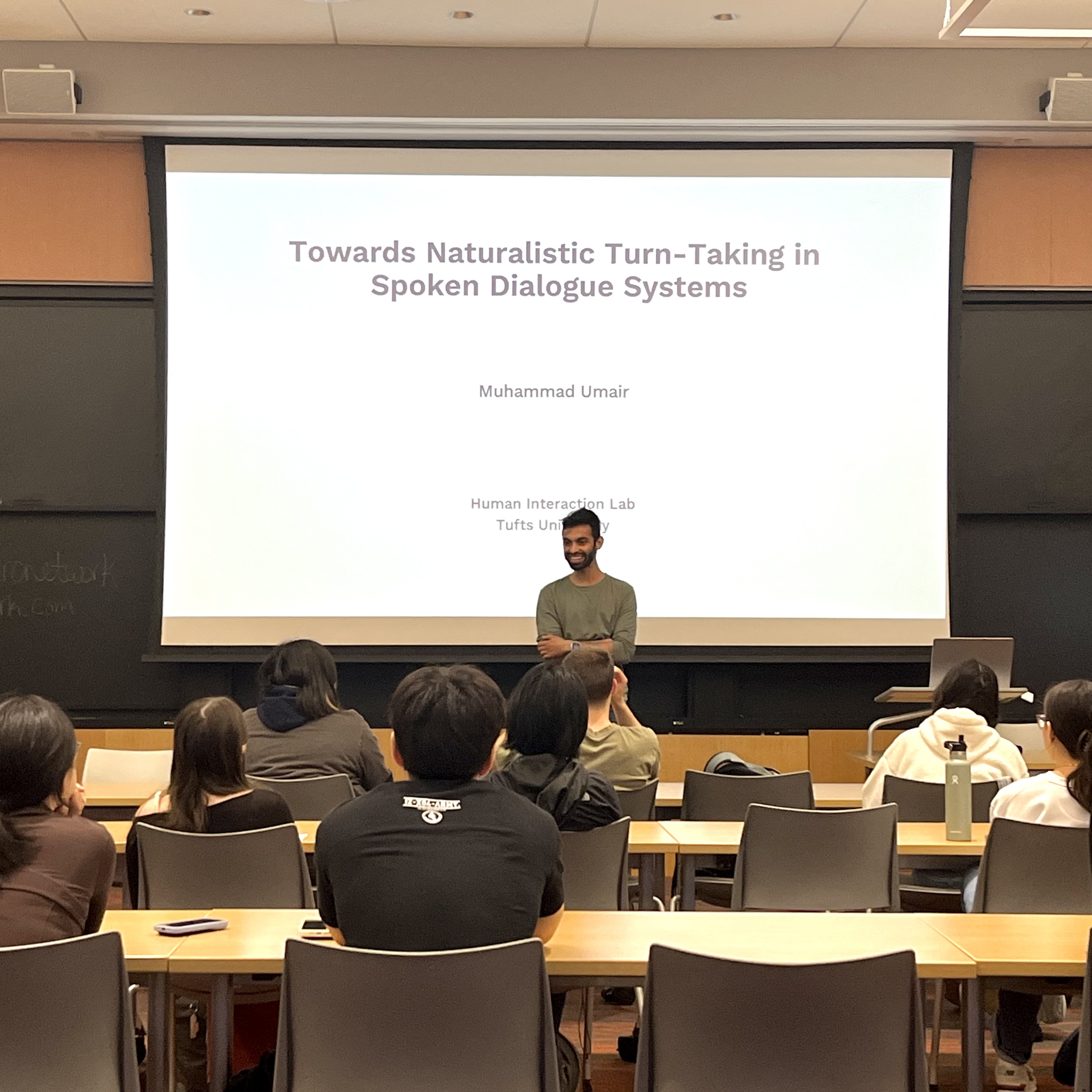Reflections on My Talk at Tufts NeuroNetwork’s "Eat & Educate
On April 29, 2024, I had the pleasure of presenting at Tufts NeuroNetwork’s “Eat & Educate” event, where I shared my research on language processing and AI with an incredibly curious and engaged group of students. NeuroNetwork’s mission—to build a community of neuroscience and cognitive science enthusiasts and connect them with opportunities across research and applied fields—is truly inspiring. Events like these provide students with invaluable resources, offering mentorship and connecting them with faculty and professionals. For me, it was an honor to contribute to such a thoughtful initiative.
The focus of my talk was on naturalistic turn-taking in conversation, a process that comes naturally to us as humans but poses significant challenges for artificial intelligence systems. I wanted to illustrate how spoken language—filled with intonations, pauses, and subtle cues—plays a crucial role in guiding conversational flow and how this differs greatly from the written text many AI models are trained on. My goal was to make these ideas approachable, explaining how AI interprets (or struggles with) conversational cues that we navigate intuitively. The students showed a keen interest in this area, which made it all the more rewarding to share.

One area I focused on was the concept of “suprisal,” or how unexpected a conversational turn might be based on prior context. In human conversation, the likelihood of a response can depend on many contextual factors, like who’s speaking and the environment. I explained how large language models, or LLMs, often fall short in managing these contextual nuances, especially with spontaneous or incongruent turns. I introduced GailBot, a system I developed to model these turn-taking dynamics and analyze congruence in conversational flow. It was exciting to see the students engage with these ideas, especially as many were encountering the fields of computational linguistics and psycholinguistics for the first time.
The feedback I received was truly encouraging. The students appreciated how I broke down the technical aspects of AI and conversation analysis, using audio samples and visuals to make complex topics more accessible. It was heartening to hear that they found the discussion not only informative but inspiring, sparking their interest in the intersection of psychology, computer science, and language processing. Many of them remarked on how understanding the limitations of AI in this context gave them a fresh perspective on both AI’s potential and its need for more human-centered approaches.
In closing, I’m incredibly grateful to NeuroNetwork for the invitation to speak and to the students who attended for their enthusiasm and openness. It was a wonderful reminder of the power of interdisciplinary learning and the importance of fostering curiosity. I look forward to following the paths these students will take and hope they continue to explore and contribute to these exciting fields. Thank you to everyone involved in making the event such a memorable experience